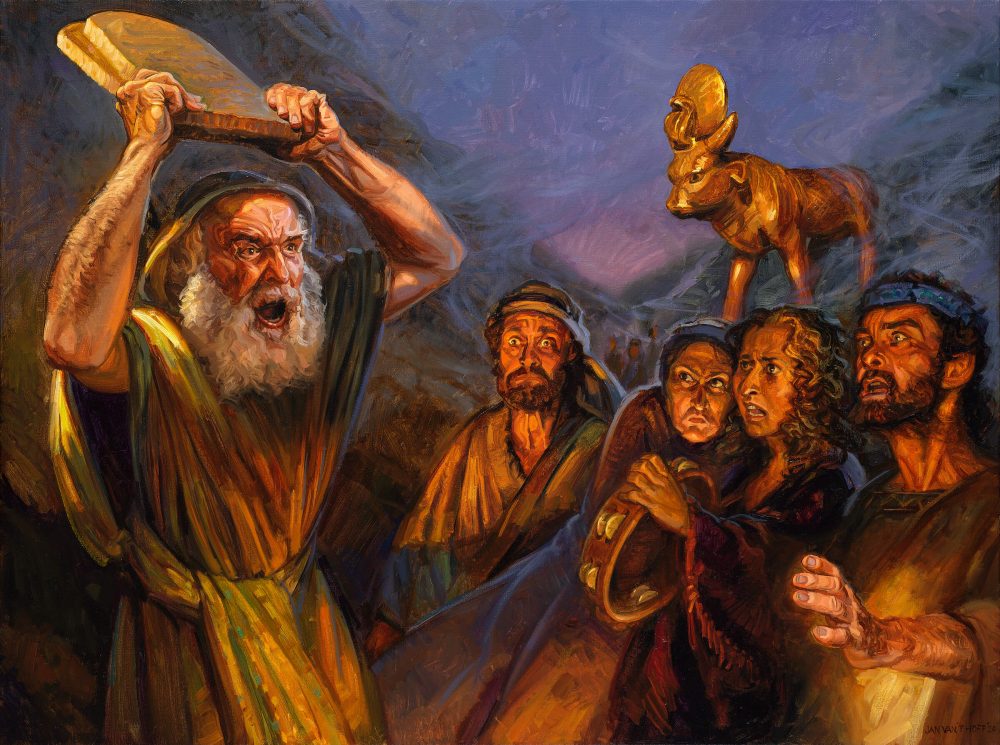Rev. José Mario O Mandía
jmom.honlam.org
In the first of the commandments God gave Moses, God said: “I am the LORD your God, who brought you out of the land of Egypt, out of the house of bondage. You shall have no other gods before me. You shall not make for yourself a graven image, or any likeness of anything that is in heaven above, or that is in the earth beneath, or that is in the water under the earth; you shall not bow down to them or serve them” (Exodus 20:2-5; cf. Deuteronomy 5:6-9).
CCCC 442 explains: “What is implied in the affirmation of God: ‘I am the Lord your God’ (Exodus 20:2)? This means that the faithful must guard and activate the three theological virtues and must avoid sins which are opposed to them.” These three theological virtues are faith, hope and charity (cf. BST 26-30).
Furthermore, the first commandment requires us to adore God alone. Thus, the Lord Jesus reminded the devil, “You shall worship the Lord your God and him only shall you serve” (Matthew 4:10). Worship or adoration is an act of the virtue of religion.
FAITH
“Faith believes in God and rejects everything that is opposed to it, such as (1) deliberate doubt, (2) unbelief, (3) heresy, (4) apostasy, and (5) schism” (CCCC 442). We have already explained this virtue in BST 27. What about the sins opposed to faith?
(1) Voluntary or deliberate doubt “about the faith disregards or refuses to accept as true what God has revealed and the Church proposes for belief” (CCC 2088). It is different from involuntary doubt where a person hesitates to believe and has difficulty in overcoming objections connected with the faith, or is anxious because faith is obscure.
(2) Incredulity or unbelief is “the neglect of revealed truth or the willful refusal to assent to it” (CCC 2089). In practical terms, voluntary or deliberate doubt is the same as incredulity or unbelief.
(3) A baptized Catholic commits heresy when he deliberately doubts or denies a dogma of faith.
(4) When a Catholic repudiates his faith totally, it is called “apostasy.”
(5) He commits a schism if he refuses to submit to the Roman Pontiff or separates himself from communion with the members of the Church subject to the Pope. (Cf. CCC no 2088 and 2089)
HOPE
“Hope trustingly awaits the blessed vision of God and his help, while avoiding despair and presumption” (CCCC 442).
From this definition, one can see that the object of hope is two-fold: (1) the hope that God will grant us unending and unlimited happiness with Him, provided we struggle; and (2) the hope that God will assist us in attaining that happiness by giving us the means to succeed in our efforts.
From the same definition, we learn that one can sin against hope either through (1) despair, when “man ceases to hope for his personal salvation from God, for help in attaining it or for the forgiveness of his sins” (CCC 2091); or through (2) presumption, which happens when “either man presumes upon his own capacities (hoping to be able to save himself without help from on high), or he presumes upon God’s almighty power or his mercy (hoping to obtain his forgiveness without conversion and glory without merit)” (CCC 2092).
Different though they may be, both despair and presumption both lead the person to give up all effort in the spiritual life.
CHARITY
“Charity loves God above all things and therefore repudiates indifference, ingratitude, lukewarmness, sloth or spiritual indolence, and that hatred of God which is born of pride” (CCCC 442).
CCC 2094 describes sins against charity as follows:
“(1) Indifference neglects or refuses to reflect on divine charity; it fails to consider its prevenient goodness and denies its power.
(2) Ingratitude fails or refuses to acknowledge divine charity and to return him love for love.
(3) Lukewarmness is hesitation or negligence in responding to divine love; it can imply refusal to give oneself over to the prompting of charity.
(4) Acedia or spiritual sloth goes so far as to refuse the joy that comes from God and to be repelled by divine goodness.
(5) Hatred of God comes from pride. It is contrary to love of God, whose goodness it denies, and whom it presumes to curse as the one who forbids sins and inflicts punishments.”
(Image: The golden calf by Jan van’t Hoff. Source: https://www.gospelimages.com)


 Follow
Follow


